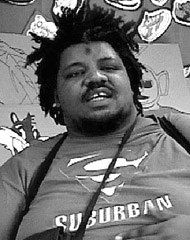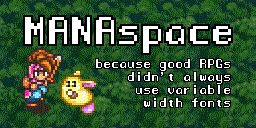 After two low budget punk albums, Billie Joe Armstrong, Mike Dirnt and Tre Cool finally secured a major label deal to release Dookie on Reprise Records. Despite many accusations from supposed hardcore fans suggesting that the band had sold out, Dookie sold in massive numbers. Those who found Kurt Cobain’s Nirvana a little too off-centre turned to Green Day to deliver a more obvious and direct approach to punk. They weren’t the only band peddling this kind of dumb-Californian-punk-lite, but alongside Offspring, Rancid et al, it was Green Day’s star that shone the brightest.
After two low budget punk albums, Billie Joe Armstrong, Mike Dirnt and Tre Cool finally secured a major label deal to release Dookie on Reprise Records. Despite many accusations from supposed hardcore fans suggesting that the band had sold out, Dookie sold in massive numbers. Those who found Kurt Cobain’s Nirvana a little too off-centre turned to Green Day to deliver a more obvious and direct approach to punk. They weren’t the only band peddling this kind of dumb-Californian-punk-lite, but alongside Offspring, Rancid et al, it was Green Day’s star that shone the brightest.The major theme recurrent throughout the LP is that of boredom. The very first line on the album is, “I declare I don’t care no more / I’m burning up and out and growing bored.” Armstrong’s lyrics, despite not being intelligent or particularly insightful somehow resonate perfectly with disillusioned and bored teens everywhere. Later on Sassafras Roots, the repeated use of the line, “Wasting your time” is a remarkably accurate description of many young adults. It seems so obvious with lyrics such as these that Dookie would manage to capture the affections of disaffected teenagers everywhere. In fact the album’s anthem Basket Case has Armstrong wonder whether he is paranoid or merely stoned. While it was Basket Case that kept MTV viewers entertained the most, it is arguably live-favourite She that offers the best summary for apathetic youth, as Armstrong asks, “Are you locked up in a world that’s been planned out for you? / are you feeling like a social tool without a use?”
While boredom and disenchantment are the cornerstones of the album, they aren’t the only teenage concerns that get covered. Somewhat inevitably adolescence forms the subject for the bulk of the remaining tracks. The single, Welcome To Paradise (which was originally released on Green Day’s second LP, Kerplunk) is a summary of leaving home. The vaguely dull, In Then End is a slightly too-typical tale of teenage love. Elsewhere, Pulling Teeth unusually covers the topic of girl-on-boy domestic violence. In contrast to some of the more gloomy subject matter the closing hidden track (entitled All By Myself) is a Tre Cool-penned ode to, well…. having fun with himself. This Beavis & Butthead humour is what always made Green Day so appealing, and it has never been highlighted better than on Dookie.
It’s obvious from even the title that this is not an album that is meant to challenge the listener. Dookie is an album made by young idiots for young idiots; and to date there hasn’t been an album that supersedes it. Dookie remains the pinnacle of California punk-lite.





